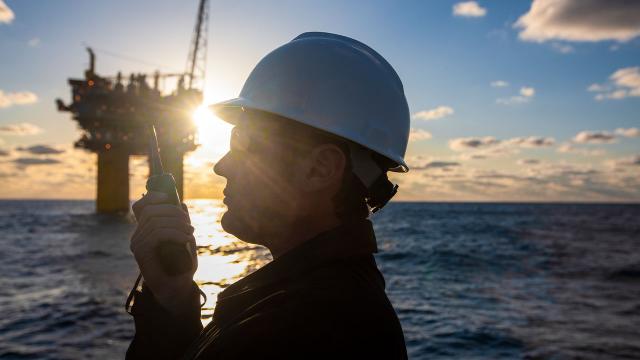
Oil and gas exploration has moved beyond the boundaries of individual countries, offshore energy operations are taking place in regions that share natural resources among multiple countries and offshore projects frequently involve international partnerships, all complex situations that could lead to confusion and increase the potential for incidents. To minimize these risks and protect the health and safety of workers, the environment and nearby communities, a unified approach to offshore operations is essential.
In response to this imperative, the Center for Offshore Safety (COS) has expanded its Safety and Environmental Management Systems (SEMS) Certificates program, now encompassing companies engaged in offshore operations anywhere in the world. The expansion aligns with the organization’s commitment to global safety and environmental protection in the offshore oil and gas industry, which it has now codified in COS-2-05, “Requirements for COS SEMS Certificates with International Addendum.”
SEMS: Demonstrating a Commitment to Safety and Performance Excellence
At the heart of COS’s effort (and COS-2-05) lies Safety and Environmental Management System (SEMS), a comprehensive set of management practices and requirements for offshore operators and contractors that are designed to increase the safety of personnel, protect the environment, and prevent accidents.
A COS SEMS Certificate distinguishes companies by demonstrating their commitment to improving safety and environmental performance. By pursuing a SEMS certificate, companies can be seen as proactive in their approach to safety and environmental protection, giving them a competitive advantage over other industry operators while building trust with the public and regulatory bodies. Indeed, with the latter, a SEMS certificate may even be required to meet local regulations.
In addition to these tangible benefits, companies also pursue a SEMS certificate simply because it’s the right thing to do. The decision is one rooted in corporate responsibility, where profitability (while essential) goes hand-in-hand with creating a reputation for responsible energy development. For these companies, achieving a SEMS Certificate is more than a virtue signal; rather, it’s a statement that the company is committed to the best practices associated with operational safety and environmental stewardship. And by adopting SEMS principles, companies instill a culture where safety and environmental protection are top-down concerns, a proactive approach that tends to boost employee morale, reduce incidents, and maintain public trust.
Beyond National Borders
Originally applied solely to operators and contractors engaged in offshore oil and gas activities within U.S. waters (the U.S. Outer Continental Shelf), SEMS is now applicable to companies engaged in those activities anywhere in the world, as detailed in API RP 75, 4th edition, Recommended Practice for a Safety and Environmental Management System for Offshore Operations and COS-2-05. This expansion recognizes the value and appeal of adopting a standardized approach, especially as companies increasingly develop international partnerships and operations.
To earn the COS SEMS Certificate, COS-2-05 requires companies to demonstrate alignment with API RP 75, 4th edition (or an earlier edition if mandated by local regulation). The company then undergoes a rigorous audit conducted by a COS-accredited Audit Service Provider, after which they would complete corrective actions for any identified non-conformities. Upon fulfilling these criteria, they would then earn a SEMS Certificate, attesting to their commitment to safety and environmental excellence across international boundaries.
“More companies around the world are applying the proven principles of a Safety and Environmental Management System (SEMS) modeled after API RP 75,” said Russell Holmes, Senior Director of COS. “As more natural gas and oil operators expand their energy portfolio to include offshore renewables such as wind, they see the value of integrating SEMS principles throughout all operations.”
Guidance for Compliance
While COS-2-05 outlines the process for companies to obtain a COS SEMS certificate, COS has provided guidance on how to plan, conduct and report audits of management systems aligned with API RP 75, 4th edition, along with guidance on how to prepare corrective action plans, in its companion documents, COS-1-06, COS-1-09, COS-1-08, and COS-1-07. Visit the COS website for more information.
As offshore energy operations continue their expansion across international waters, the need for standardized safety and environmental practices has become paramount. COS has answered the call by expanding its SEMS Certificates program, advancing its commitment to promoting the highest level of safety for offshore operations. And those pursuing a SEMS certificate demonstrate their commitment to safeguarding their workers and the environment while achieving operational integrity and excellence.
Download COS-2-05 and COS-1-09 for free at www.centerforoffshoresafety.org.
The Center for Offshore Safety (COS) promotes the highest level of safety for the U.S. offshore natural gas and oil industry through effective leadership, communication, teamwork, use of disciplined management systems, and independent third-party auditing and certification. The work of COS is based on API RP 75, Safety and Environmental Management System for Offshore Operations and Assets. Learn more about COS and information on how to become a member at www.centerforoffshoresafety.org.
API represents all segments of America’s natural gas and oil industry, which supports nearly 11 million U.S. jobs and is backed by a growing grassroots movement of millions of Americans. Our approximately 600 members produce, process and distribute the majority of the nation’s energy, and participate in API Energy Excellence®, which is accelerating environmental and safety progress by fostering new technologies and transparent reporting. API was formed in 1919 as a standards-setting organization and has developed more than 800 standards to enhance operational and environmental safety, efficiency and sustainability.
To learn more about API and the value of oil and natural gas, please visit API.org.

